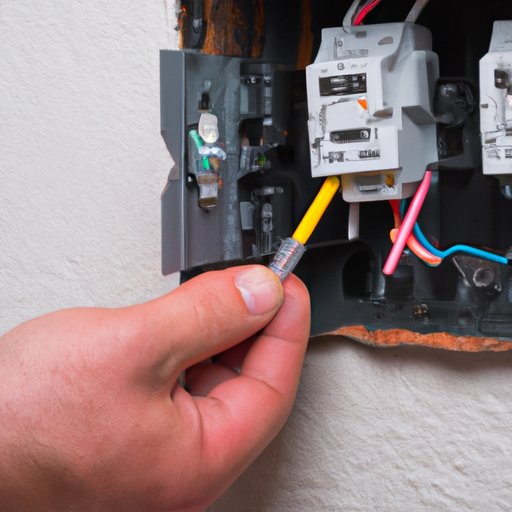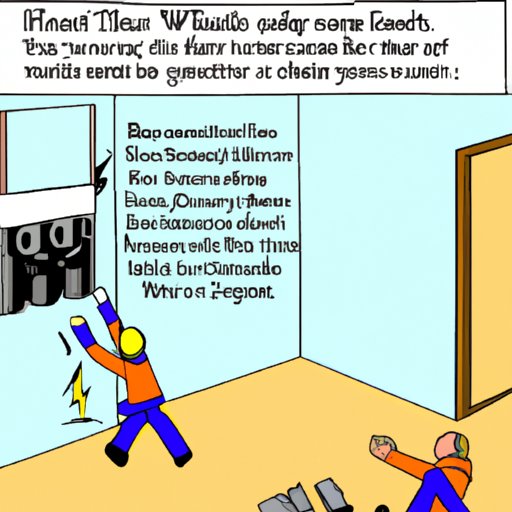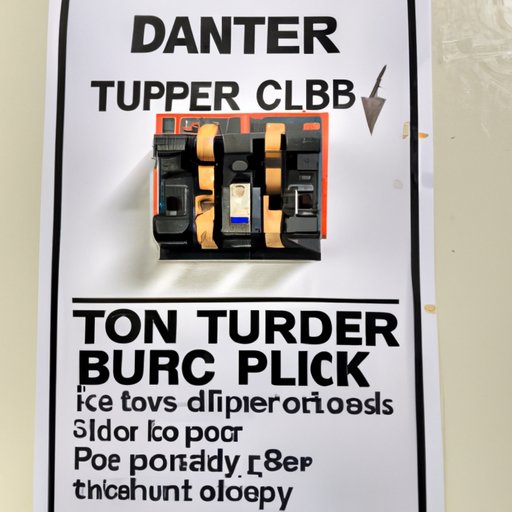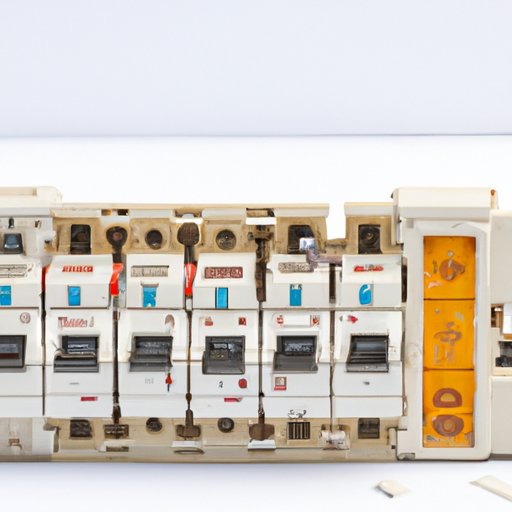Introduction
When a circuit breaker trips, it can be a real nuisance, especially if you’re in the middle of some important task like cooking dinner or doing laundry. Understanding why a circuit breaker trips and how to troubleshoot it is essential for keeping your home safe from electrical damage.
Definition of a Circuit Breaker
A circuit breaker is a safety device used in residential and commercial settings to protect against overcurrents, which are electrical surges that occur when too much current flows through an electrical circuit. When this happens, the circuit breaker shuts off the power to the circuit, preventing it from becoming overloaded and potentially causing a fire.
Overview of Common Reasons Why Breakers Trip
There are several common causes of a tripped circuit breaker, including overloaded circuits, short circuits, and ground faults. An overloaded circuit occurs when too many appliances are plugged into one circuit, resulting in an excessive amount of current flowing through the wires and causing the breaker to trip. A short circuit is caused by two wires coming into contact with each other, leading to an abnormally high current flow. Finally, a ground fault is when the hot wire in an electrical circuit comes into contact with the ground wire, resulting in an imbalance of current and the breaker tripping.

How to Troubleshoot and Fix a Tripped Breaker
The first step in troubleshooting a tripped breaker is to identify the problem. If you know what caused the breaker to trip, you can take steps to fix it. If you don’t know what caused the breaker to trip, you can reset the breaker and see if it trips again. If it does, then you should call a qualified electrician to inspect the wiring and determine the cause of the problem. If the breaker doesn’t trip again, then the problem has been resolved. In either case, if the breaker keeps tripping, you may need to replace the breaker.
Identifying the Most Common Reasons Why Breakers Trip
Outdated or faulty wiring is one of the most common reasons why breakers trip. Wiring that is more than 25 years old may not be able to handle the current demands of modern appliances, causing the breaker to trip. Incorrectly wired circuits can also cause breakers to trip. Excessive moisture can also cause breakers to trip, as it can lead to corrosion of the wiring, resulting in a short circuit. Faulty appliances can also cause a breaker to trip, as they can draw too much current and overload the circuit.

What to Do When a Breaker Keeps Tripping
If your breaker keeps tripping, the first thing you should do is turn off any unnecessary appliances or lights. This will reduce the load on the circuit and may help prevent the breaker from tripping again. You should also check the size of the breaker to make sure it’s the correct size for the circuit. If it’s not, you should replace it with a larger one. If none of these steps work, you should contact a qualified electrician to inspect the wiring and identify the cause of the problem.
Understanding the Different Types of Breakers and Their Function
There are three main types of circuit breakers: standard breakers, GFCI breakers, and AFCI breakers. Standard breakers are the most common type and are designed to protect against overloads and short circuits. GFCI breakers are designed to protect against ground faults, while AFCI breakers are designed to protect against arc faults.

The Benefits of Having a Breaker Trip
Tripping a circuit breaker may seem like an inconvenience, but it can actually be beneficial. Tripping the breaker prevents overheating of the wiring, which can lead to a fire. It also protects your electrical equipment from being damaged due to an overload or short circuit.

Tips for Preventing Circuit Breakers from Tripping
To prevent circuit breakers from tripping, it’s important to use the correct sized breaker for the circuit. You should also avoid overloading circuits by using power strips and extension cords sparingly. Additionally, it’s important to inspect wiring regularly and to use surge protectors to protect against voltage spikes.
Conclusion
Circuit breakers are essential safety devices that protect your home from electrical damage. Understanding why breakers trip and how to troubleshoot them is essential for keeping your home safe. By following the tips outlined above, you can help ensure that your circuit breakers don’t trip unnecessarily.
(Note: Is this article not meeting your expectations? Do you have knowledge or insights to share? Unlock new opportunities and expand your reach by joining our authors team. Click Registration to join us and share your expertise with our readers.)
